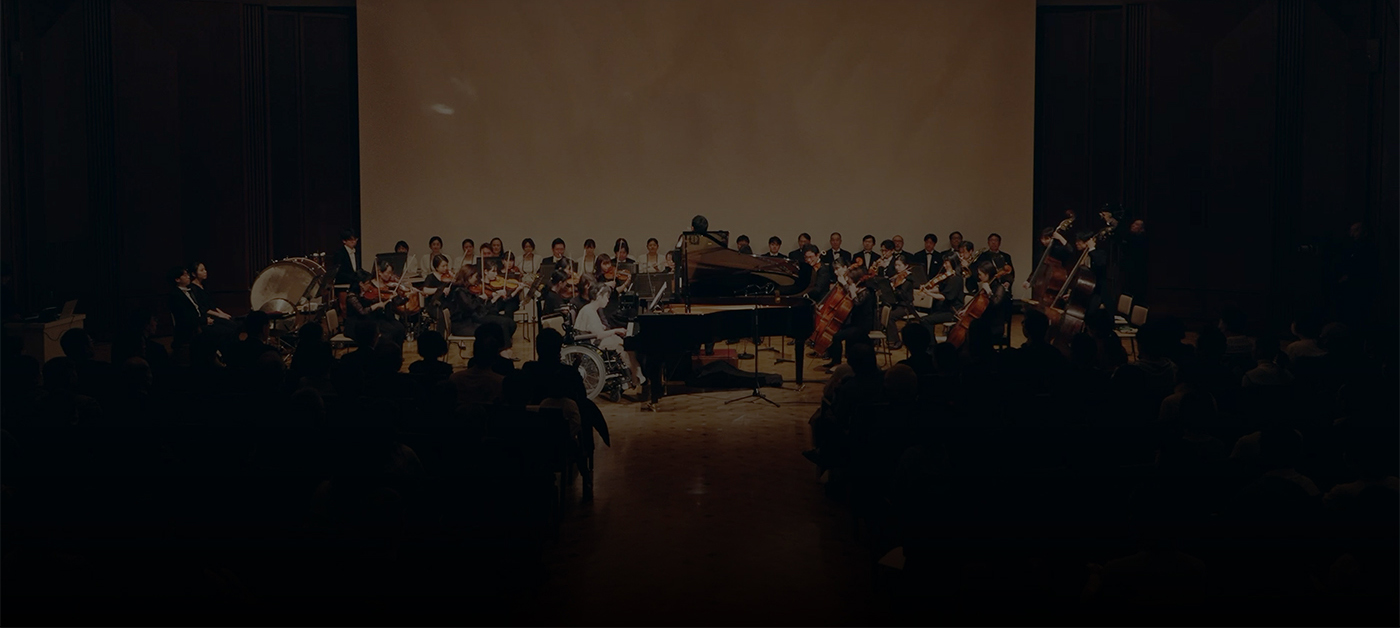
A Symphony of
Emotion, Guided by AI,
and Proven Live by
Pianists with
Disabilities.
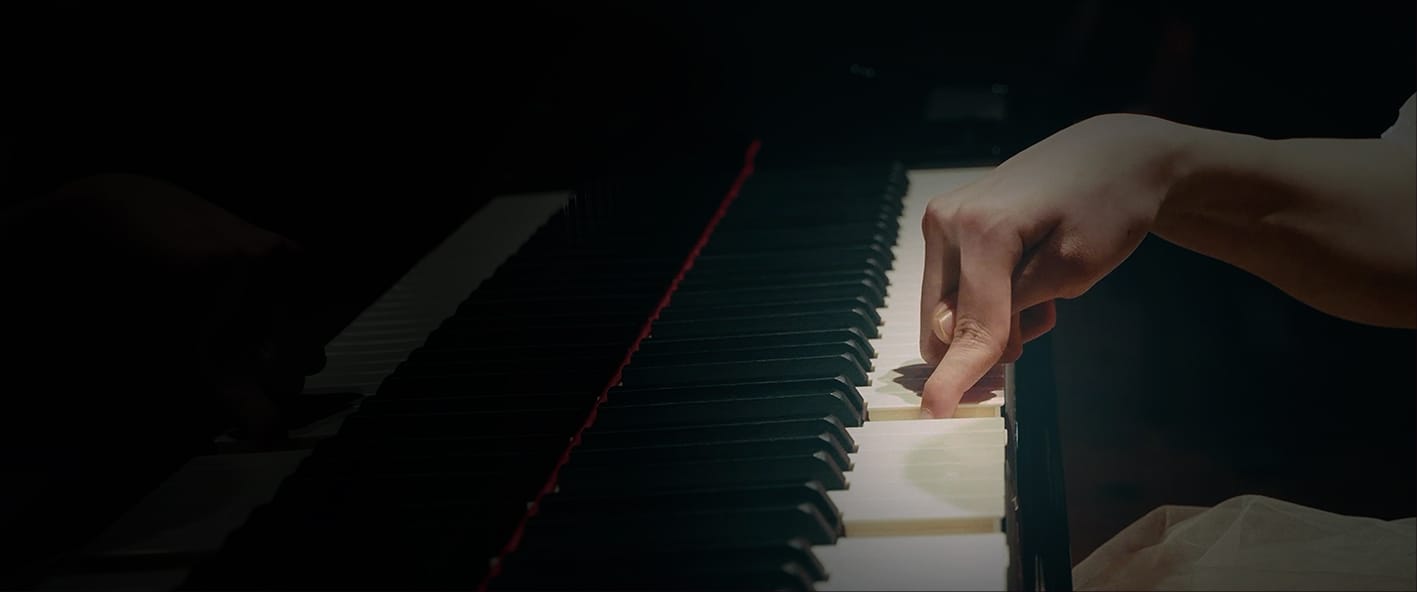
If you cannot physically play the piano,
how can you enjoy playing with others?
-

- Performer for the 1st and 2nd movementsHiroko Higashino
-
In my youth, my disability made playing the piano seem unattainable.
Believing my passion was out of reach,
I resigned to this reality for years, carrying the weight of that limitations.
-
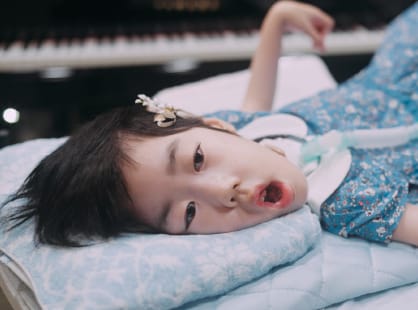
- Performer for the 3rd movementsYurina Furukawa
- Even when she indulges in her playing the piano, she does so alone at home.
-
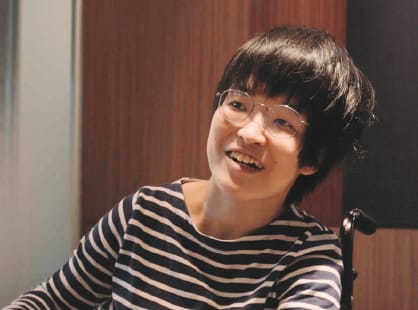
- Performer for the 4th movementsKiwa Usami
- Living with Cerebral Palsy, I face difficulties in moving both my feet and hands.
Yamaha believes the joy of music
should be accessible to everyone.
Yamaha organized a concert performance of Beethoven's Ninth Symphony that includes the well-known "Ode to Joy" in the fourth movement, including three pianists with different disabilities as soloists.
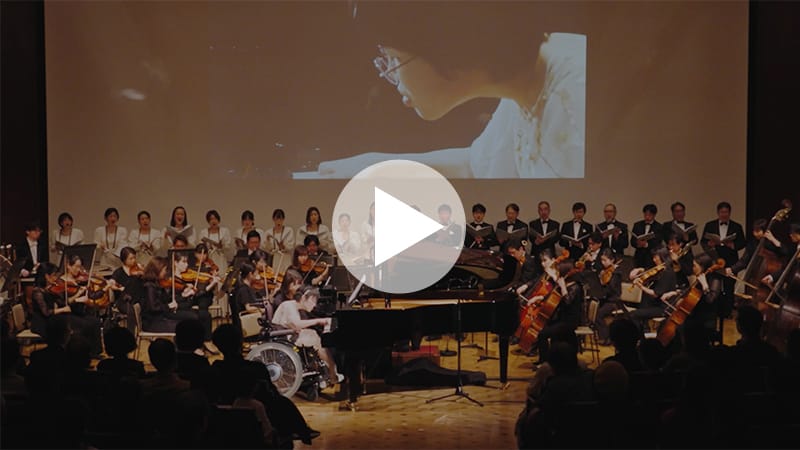
OF AI AND HUMANITY
9 months of practice and AI development
Accompaniment data used in this piano was generated by AI technology based on the data collected in advance. On the day of the concert, physical data entered by the pianist when hitting the keyboard is detected by sensors on a real time basis to trigger the hammer movement, realizing an output exactly intended by the pianist.
Power-Assisting Technology
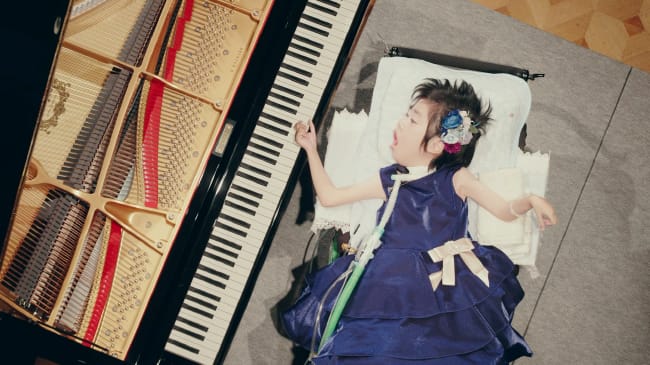

Ensures that the pianist strikes the keyboard with adequate force.
Ultra-Low Latency Sound Generation
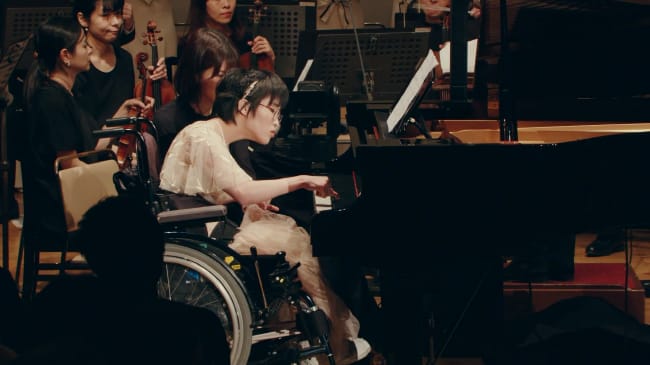

Produces accompaniment or controls pedals instantly upon touching the keyboard.
Performance Continuation Technology
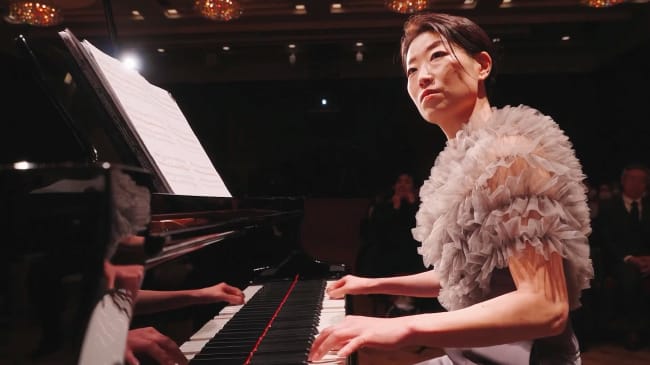

Adjusts to the pianist's irregular movements,
maintaining seamless music flow.

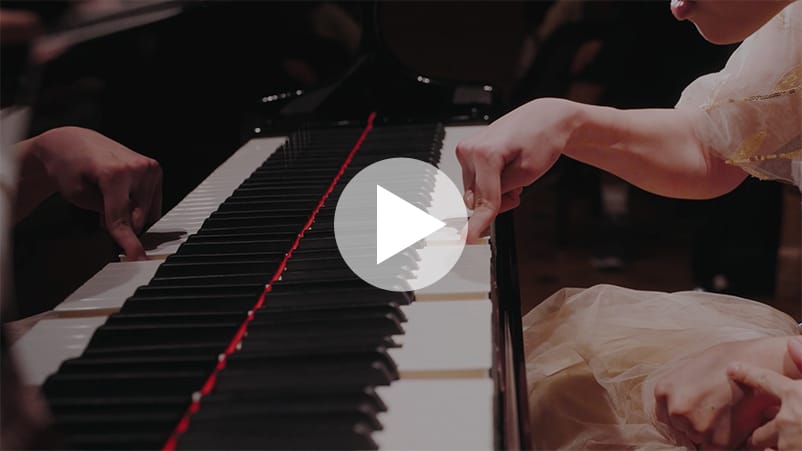
10 Million + Pianos

"The piano makes it possible for anybody to perform,
which is a very good thing for music too."


